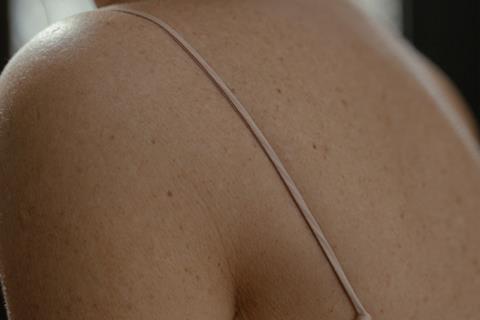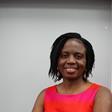Your health questions answered by our resident GP, Dr Olúṣẹ̀yẹ Àríkàwé

I get rough or bumpy skin on the back of my arms and other areas and I feel really self-conscious about it – what can I do?
Rough skin can be caused by various skin conditions such as eczema, psoriasis, allergies or dermatitis but rough and bumpy skin is usually caused by Keratosis pilaris, which is harmless but, as you rightly said, has cosmetic implications.
It’s usually associated with dry skin, so it’s advisable to use moisturisers regularly, avoid soaps that dry the skin, and use a mild and fragrance-free cleanser or a soap substitute.
Also, limit baths and shower time and use tepid instead of very hot water to prevent drying out your skin. Gentle skin exfoliation may help, and some creams can soften and flatten the bumps on the skin; these can be obtained on prescription from a GP or skin specialist.
This condition may disappear over time, but if it’s still bothering you despite the tips above, do see a dermatologist for diagnosis and treatment.

What are two simple changes I could make to my lifestyle that would really help my health?
The most important things you can do are: address your sleep pattern and avoid dehydration.
We are all familiar with lifestyle changes such as healthy diets, increasing physical activities, smoking cessation, reducing excess alcohol intake, etc. These vital lifestyle changes help maintain good health but other factors, such as sleep patterns and hydration, are often neglected.
Sleep problems (insomnia) are often difficult to manage, especially for those with chronic insomnia. Chronic insomnia is when symptoms occur on at least three nights per week for three months or more.
Average sleep duration varies from person to person, but optimal sleep duration in adults ranges from seven to nine hours. Some people have shorter or longer sleep duration; however, a short sleep duration of six hours or less is associated with health hazards. When this is persistent, It can cause weight gain and increased risk of hypertension, diabetes, heart diseases and strokes.
Here are my sleep hygiene tips:
- Maintain a comfortable sleeping environment, making sure it’s the right temperature for you, not noisy and not bright. Be aware that ‘blue light’ displays on electronic gadgets can suppress melatonin production, and this can adversely affect sleep quality.
- Maintain a good sleep pattern by going to bed only when you feel sleepy. Have a regular time of getting out of bed daily, even if you go to bed late. Increasing your exposure to bright light in the morning improves your circadian rhythm.
- Avoid napping during the day.
- Avoid exercise, alcohol, caffeine and nicotine just before bedtime.
- Use your bedroom only for sleep and intimacy; avoid using it as an extension of your office.
If you suffer with chronic insomnia, it is advisable to see your healthcare provider for further intervention, which may include referral to a sleep clinic, cognitive behavioural therapy (CBT) or short-term medications.
Another lifestyle change that can positively affect overall health is improving fluid intake, because dehydration can cause dizziness, lightheadedness, tiredness, headaches and dry skin, eyes and mouth.
Try to drink water regularly throughout the day, and avoid sugary drinks and keep your caffeine intake as low as possible. Natural sparkling water or a slice of lemon in still water are better options than regular or diet soda. A simple way to know if you have drunk enough fluids during the day is to check if your urine has a pale and clear colour.
For more health tips, see ‘5 practical things to do to see radical results in your health’ on my blog (wordforher.com).
YOUR QUESTIONS WANTED
If you have something you would like to ask the doctor, please email: womanalive@premier.org.uk
All questions will be shared anonymously.The advice given here is not a substitute for personalised professional advice, diagnosis or treatment. Please consult your health care provider for personal health or medical advice.
Dr Olúṣẹ̀yẹ Àríkàwé MBChB MRCGP DFFP DRCOG is a GP with special interest in women’s health. She helps women connect science facts to the truth of God’s word, and blogs at A Word for Her: wordforher.com
You can buy her book, How to Make Menopause a Positive Experience, here.

































No comments yet